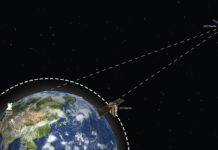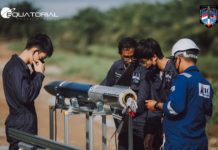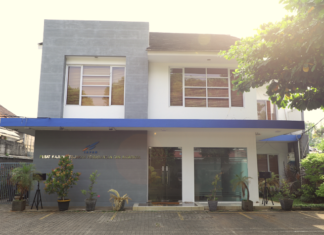For a fledgling space programme such as Indonesia’s, which has not progressed beyond developing experimental rockets, the nation seems to have taken a great interest in space law and policy.
Led by its space agency LAPAN (Lembaga Penerbangan Dan Antariksa Nasional, or Indonesian National Institute of Aeronautics and Space), Indonesia has been vocal on international platforms, reiterating the importance of clearly-established regulations and emphasizing its adherence to the Outer Space Treaty, which it signed in 1967 and completed ratification in 2002.
While most Asian countries, including a space power such as India, are still debating the necessity of a coherent national space policy, Indonesia already has an established National Space Law, sometimes also know as the Indonesian Space Act.
Enacted in 2013, it is a set of regulations which underline a national space policy in a 60-page document whose full title is Law of the Republic of Indonesia, No 21 of the year 2013, on Space Activities.
In it are defined the various activities and players involved in the space industry, along with the aims and purposes of Indonesian space activities; the latter, which outlines the reasons for Indonesian participation in outer space, forms the basis of a national policy meant to guide future missions and undertakings in an effort to boost the nation’s efforts in developing the space industry.
Steps Towards a Space Policy
Although Indonesia has not developed either a launch vehicle or launch capabilities, it became the first developing country to procure and operate its own satellite when it obtained Palapa in the year 1976. Palapa was later extended into a series of satellites operated by Telkom Indonesia, the largest telecommunications company in Indonesia.
Indonesia has traditionally been an early signatory to most international treaties, and is party to the Outer Space Treaty, the Agreement on the Rescue of Astronauts, the Space Liability Convention, and the Convention on Registration of Objects Launched into Outer Space.
Indonesia’s first attempt at governing its national aerospace industry began in 1963, when it established the National Council for Aeronautics and Space (DEPANRI). However, discussions only seriously began when DEPANRI was amended in 1993, with members that included representatives from various government ministries and agencies.
During DEPANRI’s council meetings, an important point was established; that Indonesia’s aerospace activities would tilt heavily towards commercial endeavours, with only 20% of all budget and activities being devoted to military uses during peacetime.
During the subsequent years, DEPANRI engaged industry stakeholders and the academia in submitting opinions and drafts on the policies. After a National Space Law was formally drawn up and enacted in 2013, DEPANRI was disbanded; in 2014, all space-related matters were given to LAPAN to handle.
Indonesia’s Space Aims
Under the National Space Law, the Indonesian government has listed its primary aims of engaging in space activities. The most important ones are listed below:
- To improve Indonesia’s self-sufficiency and competitiveness in the area of space activities.
- To use space to benefit its population and to increase national productivity.
- To ensure sustainability of space activities.
- To ensure that space activities have a supporting role in the defence and integrity of the nation. Further on, in Article 10 of the document, it is stated that the Ministry of Defence may utilize all of the nation’s space assets in the event of a national emergency or “for the sake of national defense and security” purposes.
To ensure these aims are met, the space agency is required to draw up a 25-year Master Plan, which takes into account the “basic national competence and strategic environment” and which contains the policy, strategy and roadmaps for the next 25 years. The Master Plan will be reviewed every five years.
The Scope of Space Activities
The law categorizes space activities into five main areas, and stipulates regulations for each. For all, there is a list of general prohibitions similar to international law – conducting nuclear activities in space, using celestial bodies for military purposes, and either threatening or contaminating the earth and space through these activities.
The five areas are:
Space science
This includes space weather, space environments and astrophysics, with the bulk of the regulations being related to space weather, early warning systems and disaster mitigation.
Remote sensing
The bulk of remote sensing regulations deal with the acquisition, processing, storage, distribution and application of data, especially satellite imagery that are either proprietary or acquired from third parties. All government agencies and satellite operators that have acquired satellite imagery and other such data are obliged to submit this data to the national space agency.
Space technology capability
Under “Space Technology Capability”, the law lists four areas – capability and development of rocket technology, capability and development of satellite technology, capability and development of aeronautics technology, and spin-off technologies. The space agency is allowed to contract Indonesian private companies if needed; the Indonesian companies are allowed to involve foreign parties as subcontractors.
Under this section, the space agency is required to have a rocket development program, create and design rocket prototypes, and conduct test launches. The same applies to satellite technology, with the added requirement of building and operating ground stations. Both the Indonesian government and the space agency are required to seek out transfer of technology through international collaborations.
Launching
Launching regulations apply to any space vehicle, vessel or aircraft with an Indonesian flag, or any vessel operating within Indonesian territory. Each space vehicle must be fully insured, and must not carry dangerous weapons.
Commercialization of space activities
This section is rather scanty, stipulating only that they can only be carried out by legal entities established under Indonesian law.
Looking to the future: Building a Spaceport
Indonesia does not currently have a launch site. However the National Space Law tasks the space agency with building and operating a space port within Indonesian territory; recent discussions with the Chinese government suggest that the two countries will be collaborating to build a launch site either in Biak or Morotai, located in New Guinea and the Maluku Islands respectively.
To build a launch site, the space agency must work closely with local governments to provide facilities, and to ensure safety and environmental preservation, by conducting thorough environmental impact assessments.
References:
IBR Supancana, “The Development on Space Law in Indonesia”. Indonesian Law Journal, 1(1). 40-45
Government of the Republic of Indonesia. Law of the Republic of Indonesia, No. 21 of 2013, on Space Activities. (https://lapan.go.id/files_arsip/UU_no.21-2013_keantariksaan_(English-Version).pdf)







